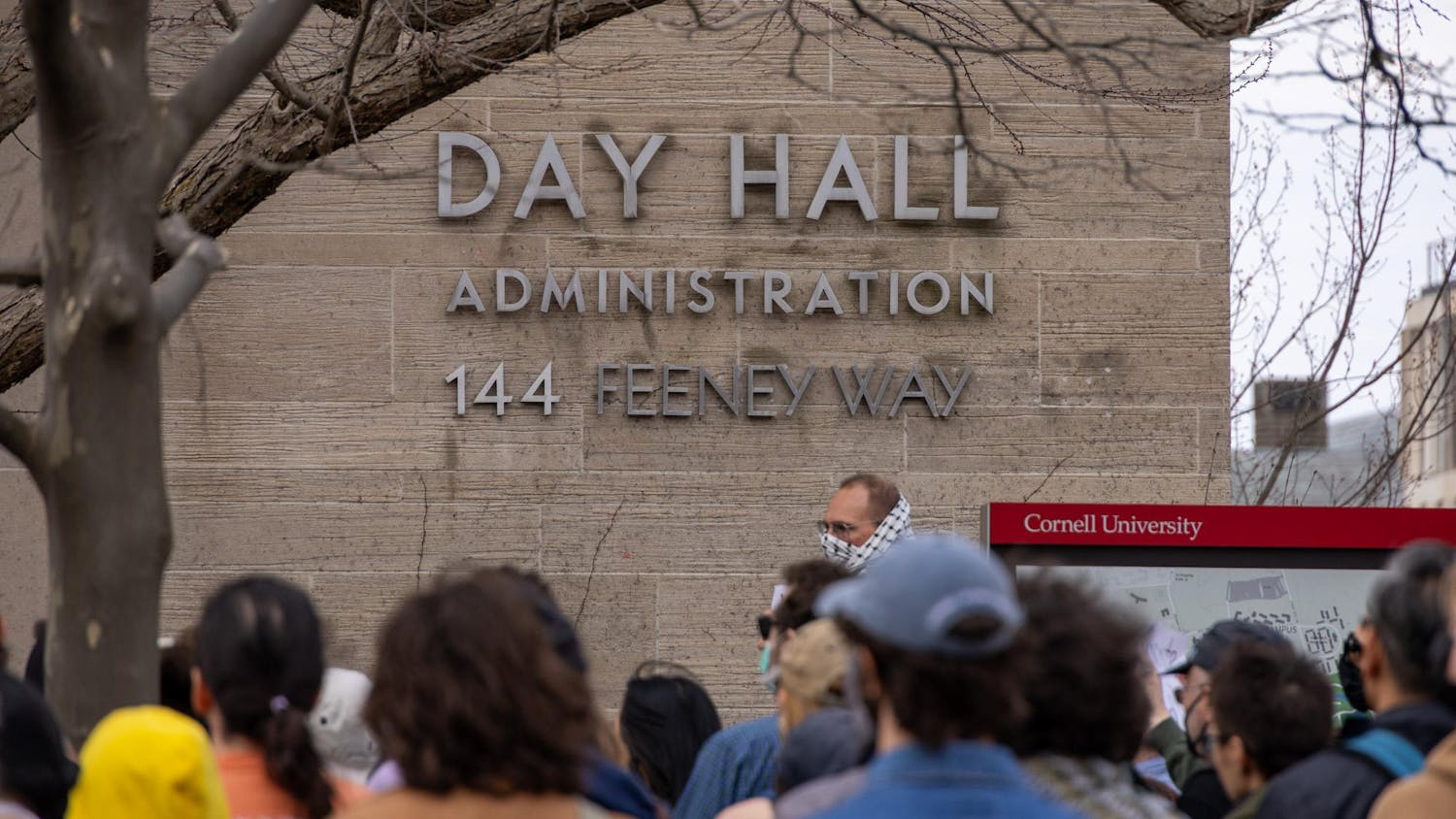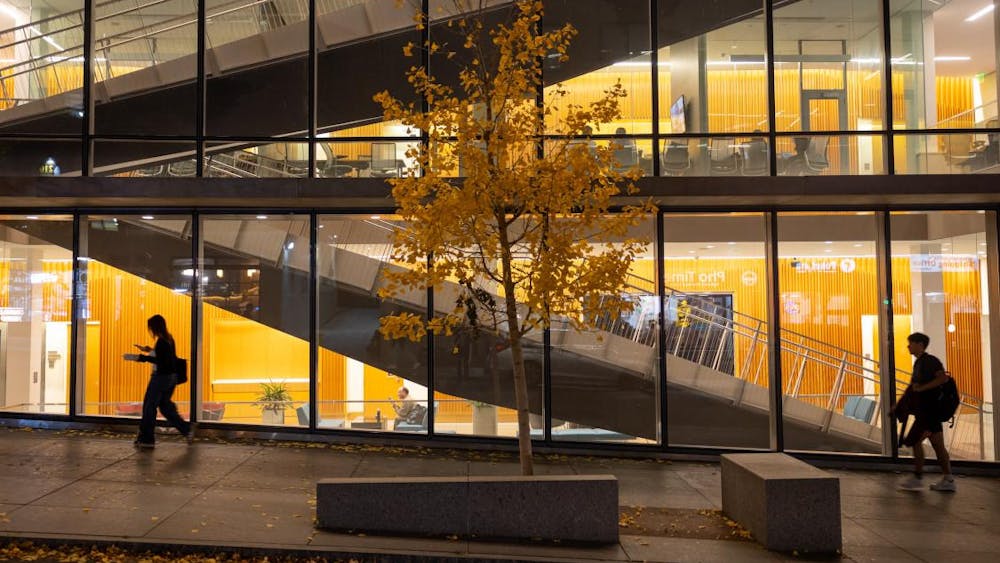A New York state judge ordered Cornell to reconsider the tenure application of Prof. Mukund Vengalattore, physics, last November. Six months later, that review hasn’t started yet, and the last Vengalattore has heard from the University is that he’ll be suspended for two weeks — without pay — starting June 1, according to Inside Higher Ed.
Vengalattore told Inside Higher Ed he does not know why he’s being suspended.
College of Arts and Sciences leadership “thoroughly disagree[s]” with Inside Higher Ed’s “narrative” but declined to comment further since “the matter is in active litigation and involves confidential personnel issues that we are not at liberty to disclose,” according to a statement from John Carberry, senior director of media relations.
The court order put an end to what Chemung County Judge Richard Rich called a “flawed, secretive, unfair” tenure review process carried out by the University against Vengalattore.
Alan Sash, Vengalattore’s attorney, told Inside Higher Ed that he’d never seen a court do so in his career.
The University first began reviewing the MIT-educated physics professor’s application for tenure in 2014.
Lauded as a “world-class” professor by a former Cornell colleague, who now teaches at CalTech, and having taught untenured at Cornell for six years, Vengalattore had reason to be optimistic when he applied for tenure. The first bump in Vengalattore’s track to tenure came when a graduate student reported “angry interactions” with Vengalattore to the department.
The graduate student, whom Vengalattore advised, drafted a letter alleging that Vengalattore had thrown an object at her, had denied her authorship credit in academic papers and had cultivated a bad atmosphere in his lab.
When Vengalattore learned of the student’s accusations, he asked the University, via the physics department, to investigate them, a request Dean Gretchen Ritter ’83 denied, according to court documents. The graduate student’s letter was put in Vengalattore’s tenure review “dossier” — the group of documents used by tenure review committees to decide whether to tenure Vengalattore or not.
Even with the graduate student’s accusations, the physics department voted to recommend Vengalattore for tenure. Upon learning of the affirmative vote, the court said, the same graduate student made new accusations against Vengalattore: that the professor sexually assaulted her and that he had a romantic relationship with her.
Ritter, vested with accepting or rejecting the physics department’s recommendation, declined to adopt the department’s judgment due to the unresolved allegations against Vengalattore. The dean formed an ad hoc committee of faculty members to review the tenure application.
The committee said Vengalattore should not receive tenure, and Ritter accepted the committee’s recommendation. But the physics department asked that a consultant be brought in to reevaluate the “group dynamics” in Vengalattore’s lab. The physics department got its wish, and the consultant reported that the atmosphere in Vengalattore’s lab was good. Still, Ritter did not change her mind, sending a preliminary denial of tenure letter to the provost.
All the while, Vengalattore was never informed of the sexual assault charge against him. At no point was Vengalattore ever given a hearing where he could challenge either the sexual assault charge or the other misconduct charges, Judge Rich said.
The judge faulted the “secretive and non-inclusive nature of the [University’s] procedure,” saying it “violated [Vengalattore’s] due process rights to such an extent as to be arbitrary and capricious.”
“The University speaks of a level playing field but keeping the allegations secret from [Vengalattore] while having those allegations sour his tenure review creates anything but a level playing field,” the judge wrote.
Ritter formally denied Vengalattore tenure when another committee — the Faculty Advisor Committee on Tenure Appointments — voted against tenuring Vengalattore.
Vengalattore finally learned about the sexual assault allegation against him when he appealed the decision — five months after the allegation was made, Judge Rich wrote.
Vengalattore’s discovery of the allegation prompted an investigation from the University’s Division of Workplace Policy and Labor Relations. It found “no evidence of sexual assault against the student,” Judge Rich wrote, but it did find that Vengalattore had been involved sexually with the graduate student, according to a document filed by the University in the case.
Vengalattore continues to dispute the finding that he had a relationship with the student and said the University prevented him from providing evidence that would back up his claim.
Prof. Kevin Clermont, law, a specialist on legal procedure who observed the Vengalattore case, told The Sun the University did not “allow [Vengalattore] to supplement the record or to challenge credibility,” one of many procedural flaws that, Clermont said, “raise[d] this case to the stratosphere of injustice.”
“The evidence was inconclusive, resting on allegations and denials. We cannot now know with certainty what happened between them, of course, but there was, after an incredibly exhaustive investigation, a telling absence of direct proof of a romantic relationship, such as e-mails, texts, or witnesses,” Clermont said of the WPLR’s decision.
Ritter accepted the WPLR’s decision, adding that the relationship between Vengalattore and the graduate student, whom the professor was advising at the time, violated University policy. Ritter also independently determined — by a preponderance of the evidence — that Vengalattore had lied to WPLR investigators, according to a letter the dean wrote to Vengalattore.
Ritter said she would impose “significant sanctions” if Vengalattore should be tenured.
Now, Ritter is “revisit[ing] her decision to delay the imposition of final sanctions with respect to the romantic relationship findings,” according to a letter the University wrote to Judge Rich. The University says Vengalattore “will be accorded all process he is due under Cornell’s procedures” regarding imposition of sanctions.
The University’s Tenure Appeals Committee, however, placed little weight on Vengalattore’s alleged relationship with the graduate student. It found that the graduate student’s accusations against Vengalattore “improperly tainted” the tenure review process, that the graduate student had a “conflict of interest” and that her letter should not have been included in the dossier, Judge Rich wrote. The committee reported its findings to Ritter.
But Ritter refused to adopt these findings, Judge Rich says, and she formed another ad hoc committee to review Vengalattore’s tenure application. The committee was unanimous: Professor Vengalattore should receive tenure.
Ritter was unmoved, court documents suggest. Despite an explicit recommendation from her newest ad hoc committee to the contrary, Ritter again denied tenure to Vengalattore, who had by this point been waiting two years for a decision.
A letter from Ritter revealed some of her reasons for denying Vengalattore tenure: his “romantic relationship” with the graduate student and his “unwillingness to accept responsibility for his actions,” according to Judge Rich.
Ritter, after redacting the document which found that Vengalattore’s lab atmosphere was good, gave the dossier to Provost Michael Kotlikoff for his final review on the tenuring decision. Judge Rich noted that Ritter excluded the positive report about Vengalattore’s lab but included an older, more negative report that some students claimed misrepresented their views.
Kotlikoff finally denied Vengalattore tenure. That’s when Vengalattore sued. Now, three years after Vengalattore’s tenure review was initiated, the professor’s position with the University continues to remain uncertain.

Judge Orders Cornell to Review Tenure Denial for ‘World-Class’ Professor
Reading time: about 7 minutes
Dean Gretchen Ritter ’83
Day Hall, home to Cornell's central administration.
Read More










